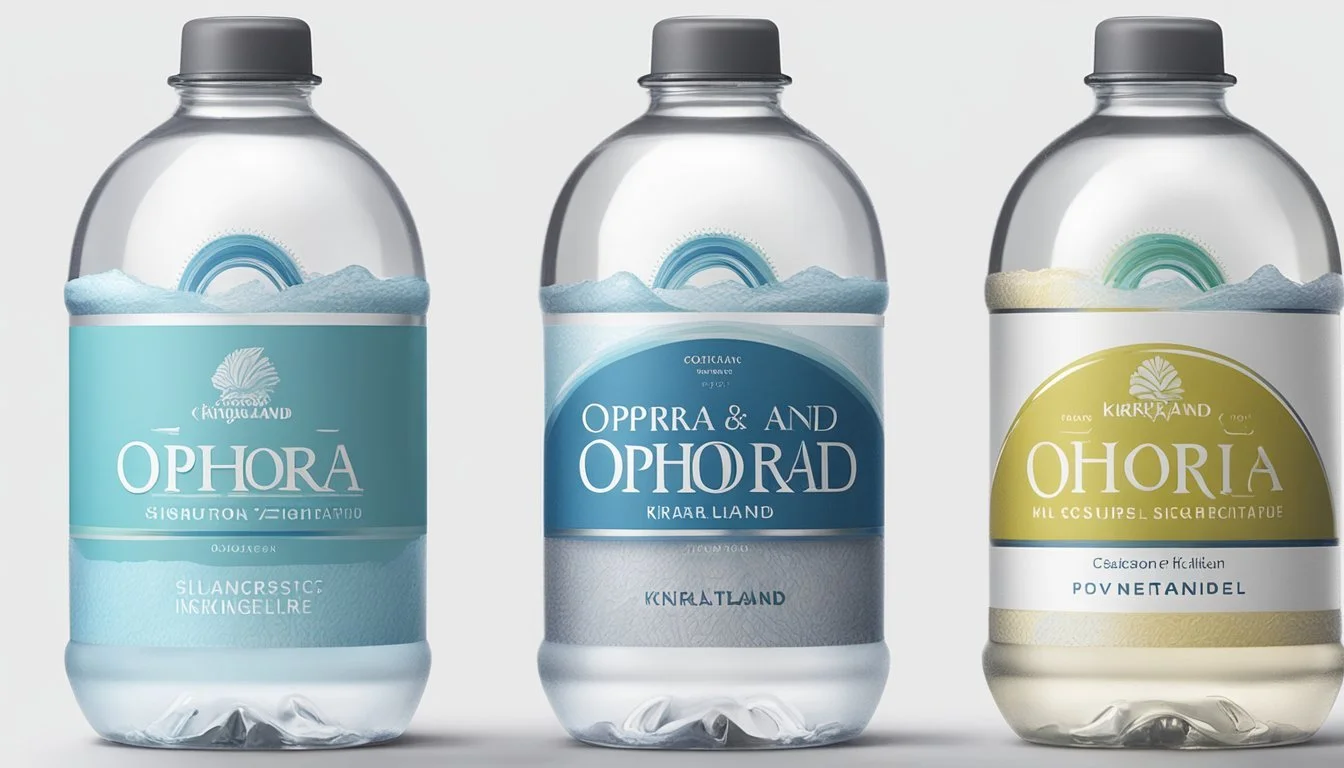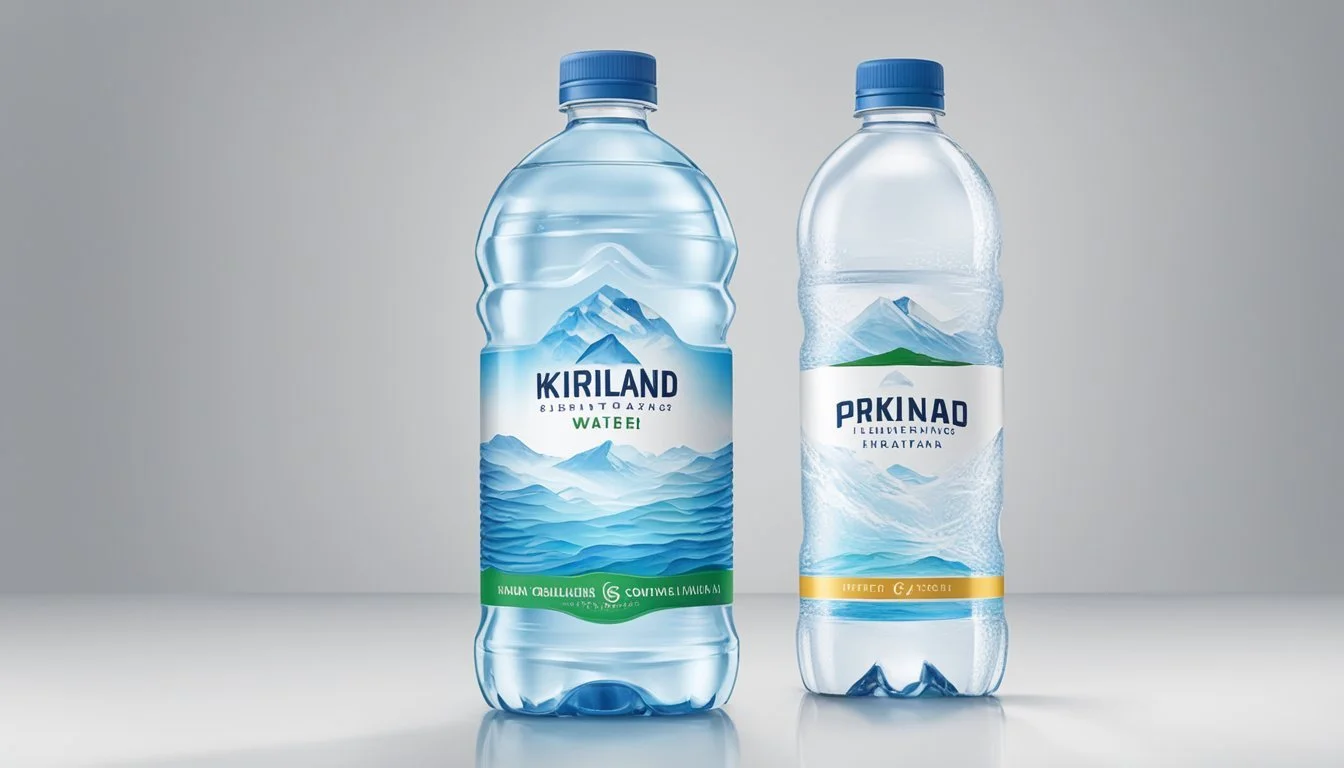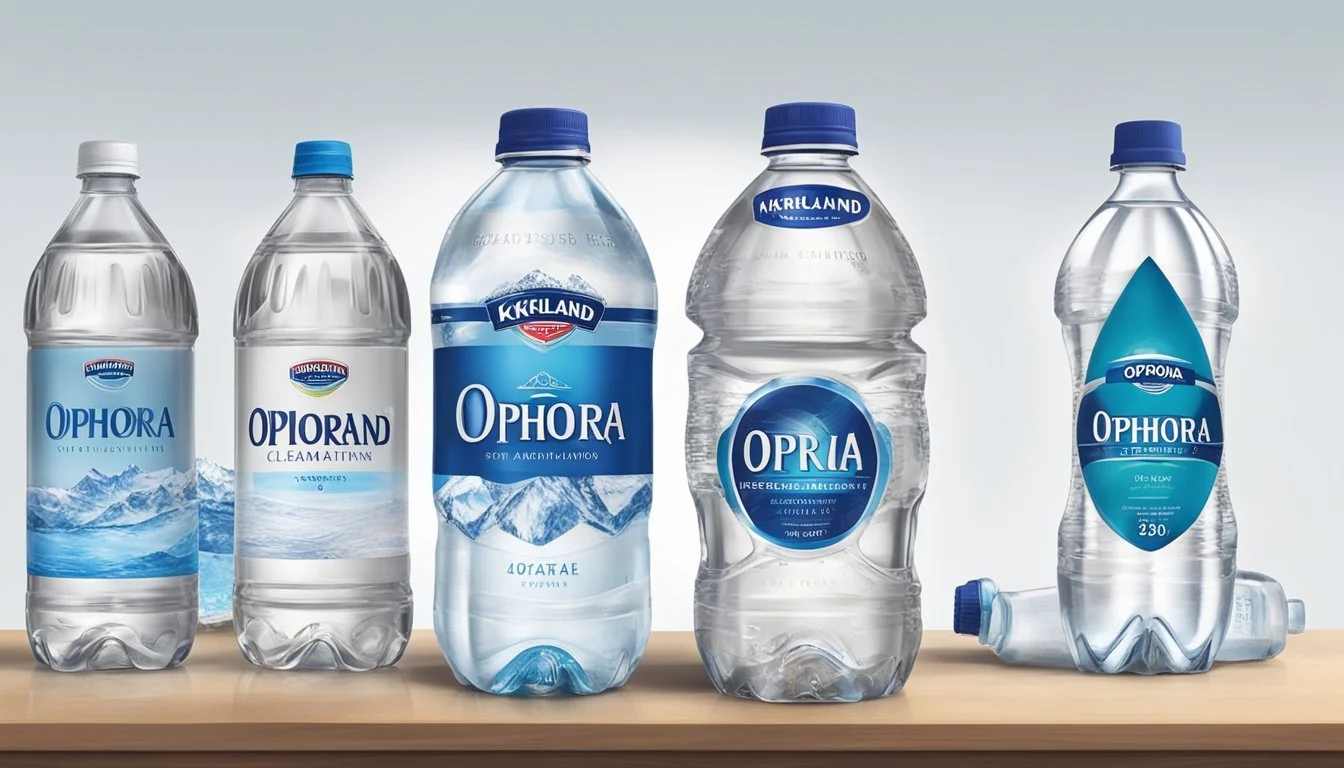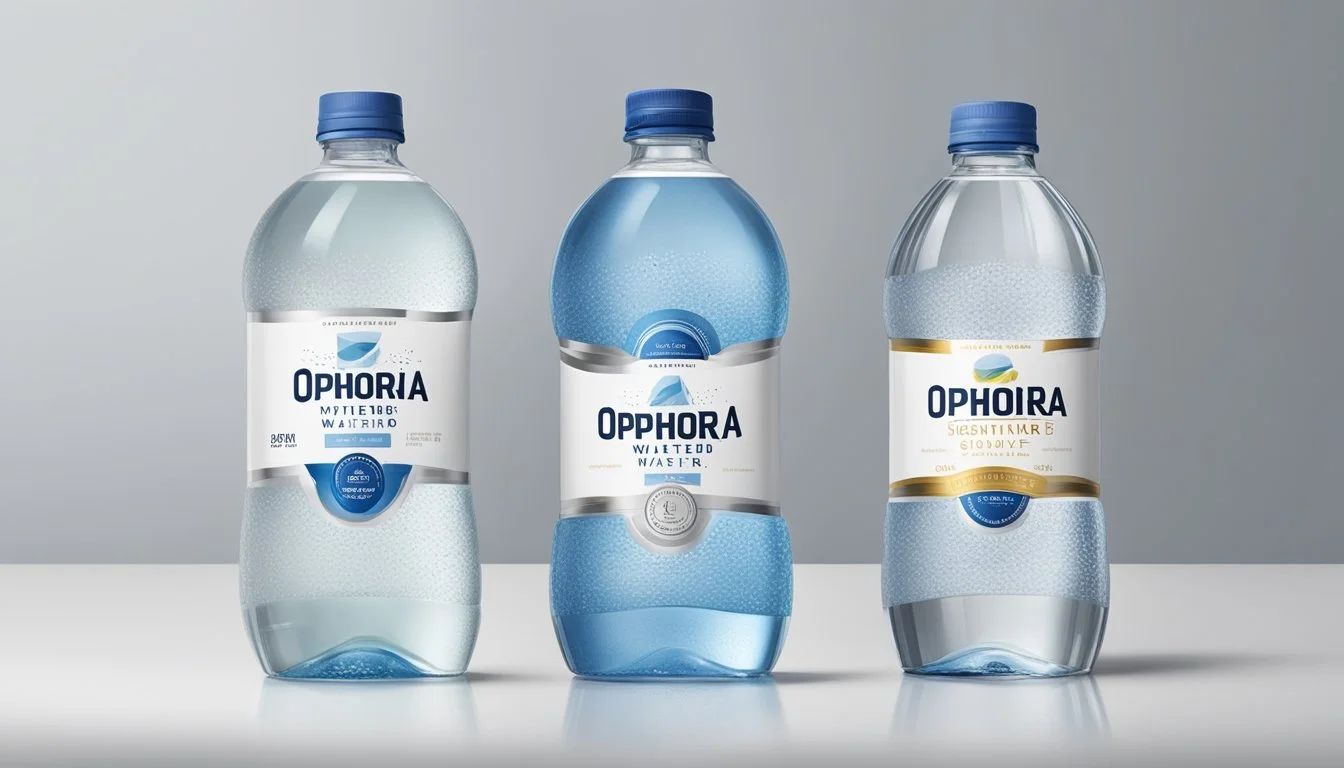Ophora vs. Kirkland Signature
Which Bottled Water Offers Superior Quality?
When it comes to bottled water, discerning consumers often find themselves torn between premium and cost-effective options. Two popular choices are Ophora, known for its high-end water purification technology, and Kirkland Signature, a favorite for budget-conscious shoppers seeking reliable quality. Ophora boasts advanced filtration processes, claiming to provide some of the purest water available, while Kirkland Signature offers a straightforward, purified taste at a fraction of the cost.
For those prioritizing health and environmental sustainability, Ophora may seem like the obvious choice. With its rigorous purification methods, it ensures minimal contaminants, which could appeal to those with specific health concerns. Conversely, Kirkland Signature, available at Costco, provides a consistent and affordable option for everyday hydration without the premium price tag.
Ultimately, the decision between Ophora and Kirkland Signature hinges on what the consumer values more: the extra assurance of purity and taste sophistication from Ophora or the practical and economical benefits of Kirkland Signature. This article delves into the features, benefits, and potential drawbacks of each, helping readers make an informed choice.
Overview of Bottled Water Industry
The bottled water industry plays a significant role in the global economy. In the United States, it is valued at over $18 billion. The industry sees robust growth with a projected annual increase of 6.5% through 2028.
The need for convenient hydration fuels the popularity of bottled water. Many consumers prefer the convenience and perceived purity compared to tap water.
A variety of water brands contribute to this thriving market. Names such as Nestlé Waters, Niagara Bottling, and Kirkland Signature are well-known. Each offers different sourcing and marketing strategies that appeal to a broad range of preferences.
Key Facts
Global reach: Bottled water sales span over 100 countries.
Growth: Global sales saw a 73% increase from 2010 to 2020.
Purity and Safety: These remain central aspects that attract consumers.
The International Bottled Water Association (IBWA) plays a critical regulatory role. This organization sets standards and advocates for safe, reliable bottled water.
Concerns about sustainability and environmental impact persist. Efforts are ongoing to address issues linked to plastic waste and to promote recycling.
Trends point towards premium and specialized water types. Alkaline, mineral-enhanced, and flavored waters are gaining popularity.
By understanding these facets, stakeholders—manufacturers, distributors, consumers—can better navigate the evolving landscape of the bottled water industry.
Comparing Water Brands: Ophora and Kirkland Signature
The differences between Ophora and Kirkland Signature bottled water brands include their histories, water sources, and bottling processes.
Brand History and Reputation
Ophora is known for its high-end, luxury bottled water options. It emphasizes health and wellness benefits and appeals to consumers seeking premium products. Ophora markets itself as offering highly oxygenated water with superior purity.
Kirkland Signature is Costco's private-label brand, recognized for its affordability and consistent quality. Available nationwide, it has built a reputation for providing good value, offering a quality product at a lower price compared to many competitors.
Source and Origin of Water
Ophora sources its water from natural springs. It highlights the purity and natural mineral content of its spring water. This focus on origin is central to its premium market positioning.
Kirkland Signature, in contrast, offers purified water that undergoes significant treatment processes. While the exact source can vary, typically, it is municipal water that is extensively filtered and purified to ensure consistency and safety.
Production and Bottling Processes
Ophora employs advanced filtration methods, including reverse osmosis and oxygenation technologies. The goal is to enhance the water's purity and increase its oxygen content. This intricate process aligns with its branding as a health-centric and high-quality water option.
Kirkland Signature, on the other hand, uses a comprehensive purification process involving micro-filtration, reverse osmosis, and UV light treatment. The process removes impurities and standardizes taste. Although less complex than Ophora's methods, Kirkland's approach ensures a dependable and clean product at a lower cost.
Scientific Analysis of Water Quality
The quality of bottled water is crucial for ensuring consumer health and meeting regulatory standards. This section will discuss key factors including pH levels and alkalinity, mineral content and health benefits, and safety and contaminant concerns.
pH Levels and Alkalinity
The pH level of water is a measure of its acidity or alkalinity. Both Ophora and Kirkland Signature waters offer different benefits based on their pH levels. Ophora water is known for its advanced oxygenation process, while Kirkland Signature ionized alkaline water usually has a pH of around 9.5. Alkaline water proponents claim it helps neutralize acid in the bloodstream, promoting enhanced hydration and reducing acid reflux.
Mineral Content and Health Benefits
Minerals such as magnesium, calcium, and bicarbonate are essential for health. Ophora water contains natural minerals and electrolytes sourced from pristine natural springs. These minerals aid in various bodily functions, including muscle contraction and blood circulation. On the other hand, Kirkland Signature water is processed through reverse osmosis, which removes contaminants but also strips beneficial minerals. The brand then reintroduces electrolytes to improve taste and offer some health benefits.
Safety and Contaminant Concerns
Ensuring the safety of bottled water involves scrutinizing potential contaminants and meeting regulatory standards set by the EPA and FDA. Consumer Reports has documented that some bottled waters contain PFAS, harmful chemicals linked to health issues. Ophora uses advanced filtration systems, including ozone and reverse osmosis, to eliminate contaminants. Kirkland Signature is also deemed safe, receiving high ratings from medical reviews. It follows strict safety measures but is not immune to contaminants found in bottled water.
Both bottled waters aim to provide safe drinking options, but differences in mineral content, alkalinity, and contaminant levels may influence consumer choice. Importantly, regular testing and adherence to safety standards ensure that both brands are suitable for consumption.
Tasting Notes and Consumer Preferences
Exploring the flavor profile and mouthfeel of both Ophora and Kirkland Signature, as well as the consumer preference for still and sparkling varieties, provides insightful comparison into their distinctions.
Flavor Profile and Mouthfeel
Ophora bottled water is often noted for its crisp, clean taste, which some describe as having a slight mineral undertone. This can enhance the refreshment experience without being overbearing. Kirkland Signature, on the other hand, is known for its signature purified taste and a subtle saccharine flavor that some consumers find appealing but may be a touch too sweet for others.
When it comes to mouthfeel, Ophora prides itself on a silky texture that glides smoothly across the palate, attributed to its high oxygen content and micro-clustering technology. Kirkland Signature offers a more straightforward mouthfeel, which many describe as refreshingly straightforward but not particularly unique. The difference in texture and flavor can be significant in shaping consumer preferences.
Preference for Still vs. Sparkling
Consumer preferences between still and sparkling varieties can vary significantly. Ophora excels in the still water segment, catering to those who desire a pure, non-carbonated drinking experience devoid of any additional flavors or gases. Their still water is praised for being exceptionally smooth and neutral, pleasing those who prefer a straightforward hydration experience.
Kirkland Signature offers both still and sparkling water options. Their sparkling water, while not as sophisticated as premium brands, provides a basic yet enjoyable bubbly experience. It’s seen as an affordable entry into the world of carbonated waters for consumers who seek a balance between cost and quality. The slight sweetness might appeal to those who prefer a less acidic sparkling water.
Preference trends suggest that those who lean towards intricate, mineral-rich flavors may prefer Ophora, while value-conscious consumers looking for reliable, everyday hydration might favor Kirkland Signature.
Comparative Analysis of Packaging and Branding
When it comes to choosing bottled water, packaging and branding play significant roles. Consumers may look for sustainability in packaging or be attracted to visual and marketing appeal.
Sustainability of Packaging
Ophora uses environmentally friendly packaging, often opting for biodegradable or recyclable materials. This appeals to eco-conscious consumers. They implement minimalistic designs to reduce waste and avoid using excessive plastics.
Kirkland Signature, sold through Costco, uses traditional plastic bottles that are partially recyclable. While not as eco-friendly as Ophora, they are widely available and convenient for bulk purchasing. Critics highlight the environmental impact of single-use plastics, making Kirkland less appealing to those prioritizing sustainability.
Visual and Marketing Appeal
Ophora’s branding exudes luxury. The sleek, minimalist design with clear fonts exemplifies sophistication, appealing to premium consumers. Their marketing often emphasizes purity and health benefits, aligning with their high-end positioning.
Kirkland Signature, on the other hand, employs a more practical approach. The packaging is simple, with a focus on utility and value. Despite being less luxurious, Kirkland's branding resonates with cost-conscious consumers looking for reliable and affordable options. Their marketing strategy leans on the trust and familiarity associated with the Costco brand.
Economic Considerations
The economic aspects of choosing between Ophora and Kirkland Signature bottled water involve evaluating both price and market availability. This section breaks down the cost-effectiveness and convenience of purchasing each brand.
Price Points and Value for Money
Kirkland Signature offers a highly affordable option for bottled water enthusiasts. At an average of $0.25 per bottle at Costco, it's one of the cheapest choices on the market. Despite the low cost, it consistently receives positive reviews for quality and taste.
Ophora, on the other hand, positions itself at the premium end. With prices reaching up to $5 per bottle, it promises a unique purification process and added health benefits like higher oxygen content. When evaluating value for money, the significant price difference becomes a crucial factor for budget-conscious consumers.
Table: Price Comparison
Brand Approximate Price per Bottle Kirkland Signature $0.25 Ophora Up to $5
Convenience and Retail Availability
Kirkland Signature water shines in its ease of access. Available at Costco and grocery stores nationwide, it is a convenient option for shoppers. Its widespread availability assures that consumers can easily purchase it during regular shopping trips.
Ophora caters to a niche market, often found in select grocery and convenience stores or online, rather than in bulk retailers. This limited availability might deter some customers despite its premium offerings. Therefore, while it offers excellent quality, its retail reach remains constrained compared to the more ubiquitous Kirkland Signature.
Environmental Impact and Sustainability
When comparing Ophora and Kirkland Signature bottled waters, considerations around environmental impact and sustainability are crucial.
Materials and Recycling:
Ophora typically uses glass bottles, which are fully recyclable and have a lower environmental footprint compared to plastic. However, glass is heavier, increasing carbon emissions during transport.
Kirkland Signature employs plastic bottles, which are widely recycled but often end up in landfills. They are lighter, reducing transport emissions but contributing to plastic pollution.
Source and Processing:
Ophora sources its water from natural springs, often emphasizing minimal processing. This method can be less energy-intensive.
Kirkland Signature sources water from the Rocky Mountains, utilizing processes such as carbon filtration and UV filtration.
Carbon Footprint:
The transportation of heavier glass bottles for Ophora might lead to higher carbon emissions.
Kirkland Signature's plastic bottles are lighter, offering lower transport emissions but with significant environmental concerns if not recycled properly.
Sustainability Initiatives:
Ophora often promotes environmentally friendly practices, such as sustainable water sourcing and minimal packaging.
Kirkland Signature focuses on cost-efficiency, leveraging mass production which can increase waste, though they have initiatives for improved recycling practices.
Packaging:
Glass packaging by Ophora is perceived as more eco-friendly but incurs higher energy costs during production.
Plastic packaging by Kirkland Signature, while cost-effective, significantly impacts the environment if not recycled.
Understanding these aspects can guide consumers in making informed choices regarding the environmental impact and sustainability of their bottled water preferences.
Conclusion
When comparing Ophora and Kirkland Signature bottled water, several factors come into play.
Taste:
Ophora is renowned for its pure and clean taste, often attributed to its advanced filtration processes.
Kirkland Signature, while also purified, sometimes has a slight saccharine undertone, which might not appeal to everyone.
Purification Process:
Ophora uses a sophisticated system, including reverse osmosis, micro-filtration, and UV exposure, ensuring high purity levels.
Kirkland Signature relies on reverse osmosis and adds electrolytes for taste, maintaining a high pH balance.
Accessibility and Cost:
Kirkland Signature is widely available and often more budget-friendly.
Ophora, while higher in price, provides a premium experience with additional health benefits like oxygen-rich water.
Health Benefits:
Ophora claims enhanced oxygenation, which may offer potential health benefits.
Kirkland Signature offers alkaline water with a pH of 9.5+, useful for those seeking to balance body acidity.
Packaging:
Both brands emphasize eco-friendly packaging.
Ophora bottles are sleek and geared towards a premium market.
Kirkland Signature offers practical, bulk options, frequently found in Costco stores.
When choosing between the two, it ultimately comes down to personal preferences regarding taste, health benefits, and budget considerations. Each brand has unique selling points that cater to different market segments.
More About Ophora
Mountain Valley Spring Water vs Ophora: Which Bottled Water is Better?
Richard's Rainwater vs Ophora: Which Bottled Water is Better?
Whole Foods Italian Still Mineral water vs Ophora: Which Bottled Water is Better?
More About Kirkland Signature
1907water vs Kirkland Signature: Which Bottled Water is Better?
7-Select vs Kirkland Signature: Which Bottled Water is Better?
Acqua Pana vs Kirkland Signature: Which Bottled Water is Better?
Alkaline88 vs Kirkland Signature: Which Bottled Water is Better?
Antipodes vs Kirkland Signature: Which Bottled Water is Better?
Aqua Carpatica vs Kirkland Signature: Which Bottled Water is Better?
Aquafina vs Kirkland Signature: Which Bottled Water is Better?
Arrowhead vs Kirkland Signature: Which Bottled Water is Better?
Big Chill vs Kirkland Signature: Which Bottled Water is Better?
Big Win vs Kirkland Signature: Which Bottled Water is Better?
BodyArmor vs Kirkland Signature: Which Bottled Water is Better?
Boxed Water vs Kirkland Signature: Which Bottled Water is Better?
Cascade Mountain vs Kirkland Signature: Which Bottled Water is Better?
Castle Rock vs Kirkland Signature: Which Bottled Water is Better?
Core Hydration vs Kirkland Signature: Which Bottled Water is Better?
Crystal Geyser vs Kirkland Signature: Which Bottled Water is Better?
Deer Park vs Kirkland Signature: Which Bottled Water is Better?
Erewhon vs Kirkland Signature: Which Bottled Water is Better?
Essentia vs Kirkland Signature: Which Bottled Water is Better?
Eternal vs Kirkland Signature: Which Bottled Water is Better?
Hawaii Volcanic vs Kirkland Signature: Which Bottled Water is Better?
Hawaiian Springs vs Kirkland Signature: Which Bottled Water is Better?
Ice Mountain vs Kirkland Signature: Which Bottled Water is Better?
Icelandic Glacial vs Kirkland Signature: Which Bottled Water is Better?
Just Water vs Kirkland Signature: Which Bottled Water is Better?
Kirkland Signature vs Action: Which Bottled Water is Better?
Kirkland Signature vs CBD Living: Which Bottled Water is Better?
Kirkland Signature vs Crystal Lake: Which Bottled Water is Better?
Kirkland Signature vs Dasani: Which Bottled Water is Better?
Kirkland Signature vs Essence pH10: Which Bottled Water is Better?
Kirkland Signature vs HFactor: Which Bottled Water is Better?
Kirkland Signature vs Proud Source: Which Bottled Water is Better?
Kirkland Signature vs Ramona: Which Bottled Water is Better?
Kroger vs Kirkland Signature: Which Bottled Water is Better?
LIFEWTR vs Kirkland Signature: Which Bottled Water is Better?
Liquid Death vs Kirkland Signature: Which Bottled Water is Better?
Mananalu vs Kirkland Signature: Which Bottled Water is Better?
Mountain Valley Spring Water vs Kirkland Signature: Which Bottled Water is Better?
Nestle Pure Life vs Kirkland Signature: Which Bottled Water is Better?
Open Water vs Kirkland Signature: Which Bottled Water is Better?
Origin vs Kirkland Signature: Which Bottled Water is Better?
Ozarka vs Kirkland Signature: Which Bottled Water is Better?
Perrier vs Kirkland Signature: Which Bottled Water is Better?
Poland Spring vs Kirkland Signature: Which Bottled Water is Better?
Pure Life vs Kirkland Signature: Which Bottled Water is Better?
Purely Sedona vs Kirkland Signature: Which Bottled Water is Better?
Refreshe vs Kirkland Signature: Which Bottled Water is Better?
Richard's Rainwater vs Kirkland Signature: Which Bottled Water is Better?
San Pellegrino vs Kirkland Signature: Which Bottled Water is Better?
Simple Truth vs Kirkland Signature: Which Bottled Water is Better?
Smartwater vs Kirkland Signature: Which Bottled Water is Better?
Solan de Cabras vs Kirkland Signature: Which Bottled Water is Better?
Starkey vs Kirkland Signature: Which Bottled Water is Better?
Talking Rain AQA vs Kirkland Signature: Which Bottled Water is Better?
The Well vs Kirkland Signature: Which Bottled Water is Better?
Topo Chico vs Kirkland Signature: Which Bottled Water is Better?
Tru Alka vs Kirkland Signature: Which Bottled Water is Better?
Volvic vs Kirkland Signature: Which Bottled Water is Better?
Waiakea vs Kirkland Signature: Which Bottled Water is Better?
Weird Water vs Kirkland Signature: Which Bottled Water is Better?
Whole Foods 365 vs Kirkland Signature: Which Bottled Water is Better?
Whole Foods Italian Still Mineral water vs Kirkland Signature: Which Bottled Water is Better?
Zenwtr vs Kirkland Signature: Which Bottled Water is Better?
Zephyrhills vs Kirkland Signature: Which Bottled Water is Better?







